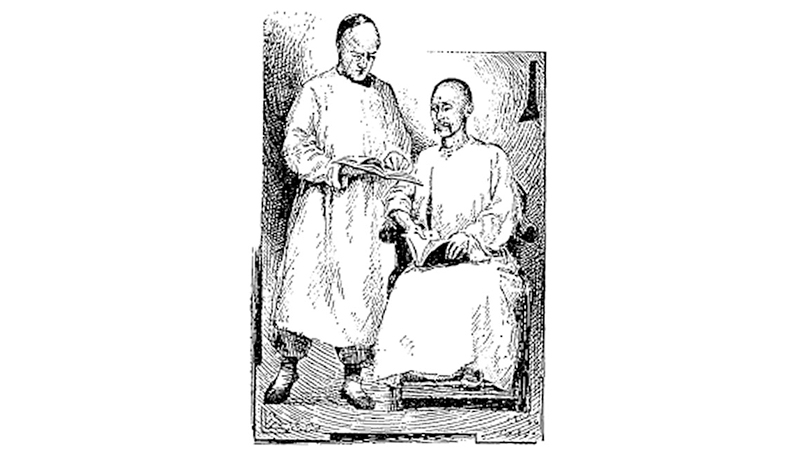

God used the unique, holistic ministry of Pastor Xi Shengmo to reveal Himself deep in the interior of China at a time when few missionaries ventured there. In 1830, twelve years before the First Opium War between China and Western nations, Xi was born in a village near Linfen, the leading city of south Shanxi Province. The Western nations were forcing China to import tons of opium, and the boy saw Chinese society rapidly degenerating. Xi became a Confucian scholar known for his haughty spirit and quick temper, but he took opium during an illness and became addicted.
In 1877, famine struck Shanxi, partially due to the use of land to grow opium rather than grain. Within two years, five million died, 1/3 of Shanxi’s population. Missionaries came to provide famine relief and sponsored an essay contest as a way to meet scholars. Xi, now an impoverished addict, won the contest. His essays so impressed English missionary David Hill that he hired Xi as a language teacher and translator.
Xi started reading the Bible and soon committed his life to Christ. He then spent an agonizing week trying to withdraw from opium and was able to do so only after a time of desperate prayer. Xi changed his given name from Liaozhi to Shengmo, meaning Demon Overcomer. Xi faithfully attended services conducted by the missionaries in Linfen, but the half-day’s journey from his home village meant that he often ministered independently. He was an avid student of the Bible and a man of deep prayer. One of the first to respond to his ministry was his wife, whose initial hostility was overcome when Xi cast a demon from her after praying and fasting for three days.
Prayer and fasting were key ingredients in the ministry of teaching and healing that God gave Pastor Xi. His training as a scholar of the Confucian Classics led him to contend that Christianity was not a foreign religion, but rather a return to the ancient monotheism of China. He developed an extensive outreach to opium addicts. When he could not get imported medicine from the missionaries, the Lord answered his prayer by revealing a way to make medicine from local ingredients. By 1906, there were 45 treatment centers in 4 provinces, and over 300,000 had been cured.
The centers were operated independently of missionaries, but Xi remained in close connection with the China Inland Mission for his preaching ministry. Hudson Taylor visited him twice and personally ordained Xi as supervising pastor of south Shanxi. Xi’s duties involved such extensive travel that he was sometimes away from home for months at a time. Although he once felt that the relationship in which he had the greatest failure was his marriage, he and his wife saw God draw them together in His love. Mrs. Xi began a ministry for women opium addicts in 1891 and was a source of great comfort and inspiration to her husband. The pioneering work done by Xi brought him many trials, yet he grew to see them as opportunities for the Lord to strengthen him spiritually. Eventually the physical demands of the ministry so exhausted him that he was confined to his bed for months before he went to be the Lord on February 19, 1896.
On account of many onslaughts of Satan, my wife and I for the space of three years seldom put off our clothing to go to sleep, in order that we might be the more ready to watch and pray. Sometimes in a solitary place, I spent whole nights in prayer…
Pastor Hsi: One of China’s Christians, Mrs. Howard Taylor, p. 34.